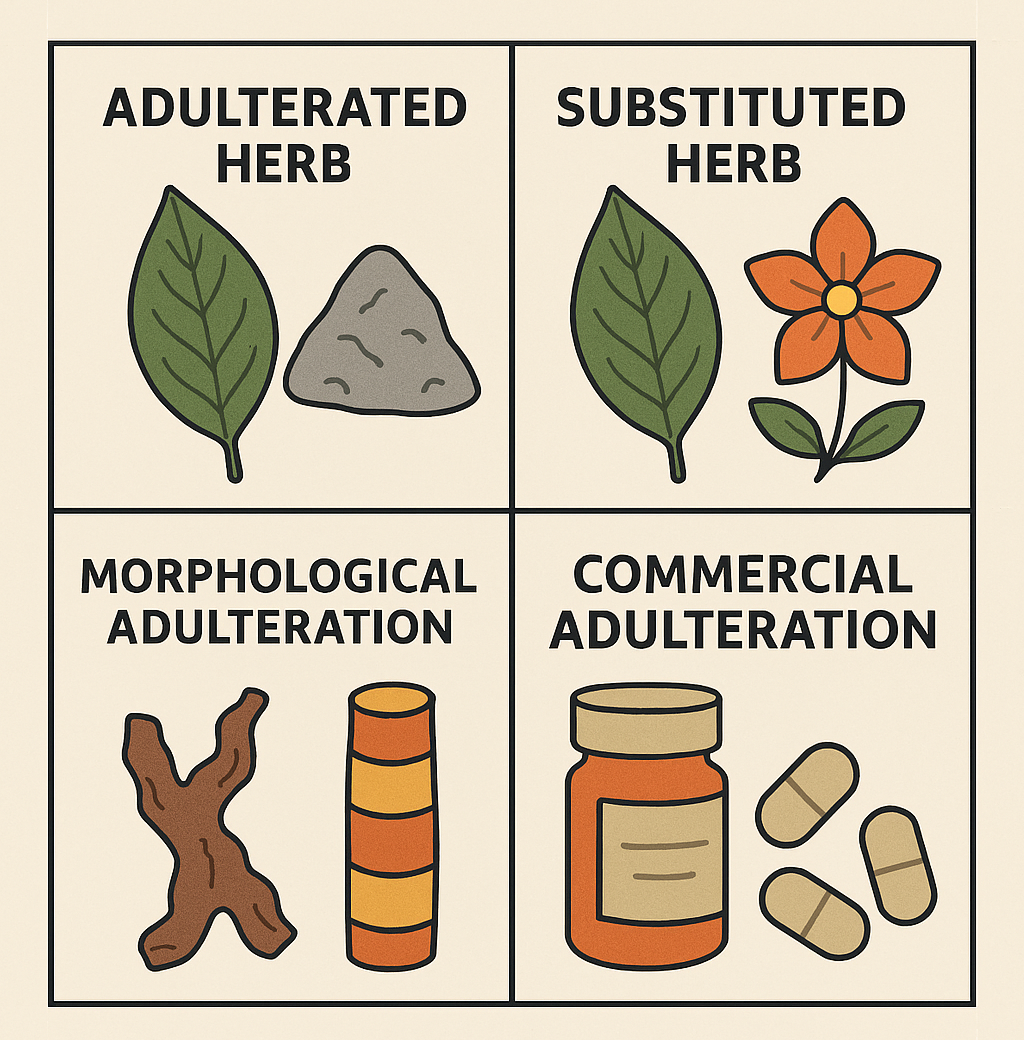Adulteration and Substitution of Herbal Drugs: A Critical Review of Challenges and Implications for Integrative Medicine
DOI:
https://doi.org/10.21760/jaims.10.7.1Keywords:
Adulteration, Substitution, Herbal Drugs, Ayurveda, Pharmacognosy, Integrative Medicine, Quality Assurance, DNA Barcoding, Herbal AuthenticityAbstract
The authenticity and purity of herbal drugs form the cornerstone of their therapeutic efficacy. However, increasing global demand has paved the way for unethical practices such as adulteration and substitution, posing serious risks to clinical outcomes and public health. Adulteration i.e., intentional incorporation of inferior or synthetic materials and substitution of genuine herbs with unrelated species have emerged as widespread challenges within herbal medicine supply chains. These practices undermine therapeutic efficacy, compromise pharmacological reliability, and pose significant risks to patient safety, particularly in the context of integrative care where precision and synergy are supreme. This review explores the multifactorial drivers behind adulteration and substitution, including economic pressures, species misidentification, and regulatory gaps. Diagnostic methodologies, ranging from classical Ayurvedic organoleptic assessments to modern techniques such as DNA barcoding and HPTLC, are evaluated for their role in quality assurance. Ensuring the purity of herbal medicines is not merely a technical requirement but it is an ethical imperative for advancing safe, reliable, and evidence-based integrative healthcare.
Downloads
References
Alyas AA, Aldewachi H, Aladul MI. Adulteration of herbal medicine and its detection methods. Pharmacogn J. 2024;16(1):248–254.
Posadzki P, Watson L, Ernst E. Contamination and adulteration of herbal medicinal products (HMPs): an overview of systematic reviews. Eur J Clin Pharmacol. 2013;69(3):295–307.
Diwakar D. Adulteration and deterioration: substitution of herbal drugs, causes and measures. Ashokrao Mane College of Pharmacy. 2023.
Calahan J, Howard D, Almalki AJ, Gupta MP, Calderón AI. Chemical adulterants in herbal medicinal products: a review. Planta Med. 2016;82(6):505–515.
Pratiwi R, Dipadharma RHF, Prayugo IJ, Layandro OA. Recent analytical method for detection of chemical adulterants in herbal medicine. Molecules. 2021;26(21):6606.















